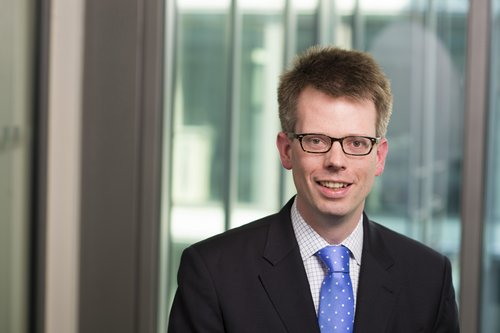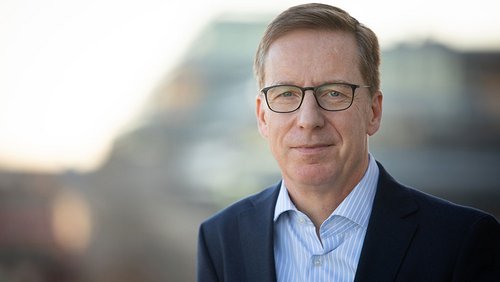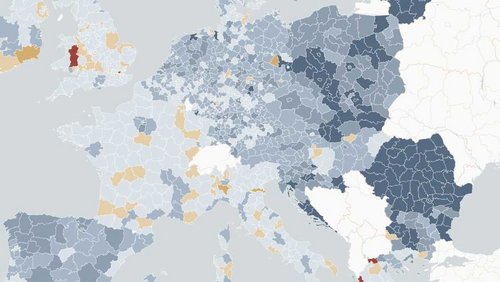Your search returned an incorrect status. You may have selected too many filters. You can jump back to your previous selection to adjust your search.

Data economy, data spaces, and economic and cybersecurity threats that arise from this kind of mass data collection are discussed by Ricardo Silvestre (Movimento Liberal Social) and IW-Head of Digitisation Research Vera Demary.
Vera Demary im Liberal Europe Podcast IW

Cyberattacks are hardly limited to one country in an interconnected world. We discuss the impact of Russian cyberattacks against Ukraine on European companies with dr Vera Demary, head of digitalization at the German economic institute, and Iva Tasheva, cybersecurity consultant at CyEn.
Vera Demary at EURACTIV IW
![[Translate to Englisch:] IW-Digitalisierungsexpertin Vera Demary [Translate to Englisch:] IW-Digitalisierungsexpertin Vera Demary](/fileadmin/_processed_/a/7/csm_Demary_Vera_FRLS1348_bacc3a6b23.jpg)
China has pursued an aggressive agenda on a number of digital issues. IW digitization expert Vera Demary discusses China's strategy for regulating the technology sector and its impact on European companies with EURACTIV.
Vera Demary at EURACTIV IW

Despite great approval in parliament, the Federal Constitutional Court stopped the 750 billion Euro EU Corona Reconstruction Fund for the time being due to a constitutional complaint. In a video interview for ACGUSA, IW Director Michael Hüther discusses the consequences of this decision with economist Monika Schnitzer from the University of Munich.
Michael Hüther at the American Council on Germany IW

What are the economic consequences of the Corona crisis and how does the opening of the country in Germany go compared to the Australian plans? IW Managing Director Hubertus Bardt talks about this in a podcast with CEDA – the Committee for Economic Development of Australia.
Hubertus Bardt in a podcast of CEDA IW

For many, the prospect the world may be returning to normal is a relief. But health experts say relaxing too much, too soon, could trigger a second wave of infections. So what are the risks? And can such a move soften the financial impact of the pandemic?
Hubertus Bardt on Al Jazeera News IW

Ilaria Maselli, senior economist for Europe at The Conference Board, talks with Michael Hüther about his latest book „Exhausted Globalization”: Between the Transatlantic Orientation and the Chinese Way". The book is a thorough reflection about the downturn globalization is going through. It investigates the reasons why globalization is losing energy and appeal, and sketches possible ways to make it more inclusive.
Michael Hüther IW

In this episode of The Zeitgeist, Michael Hüther, Director of the German Economic Institute, joined AICGS President Jeff Rathke and Senior Fellow Peter Rashish to talk about what Hüther calls the end of the second era of globalization and the challenges of shaping the third era of globalization, creating a European and an international framework that is politically sustainable and economically effective.
Michael Hüther in The Zeitgeist IW

Before the economic crisis, European regions with low economic output per inhabitant grew faster than the wealthier ones. The living conditions on the continent became more similar. Since 2010, however, the process of catching-up has been stopped.
Matthias Diermeier / Markos Jung / Pekka Sagner IW

In the European Union 482 kg of municipal waste is generated per person. In Germany it is even more, but at the same time considerably more German waste is recycled.
Adriana Neligan IW
Your search returned an incorrect status. You may have selected too many filters. You can jump back to your previous selection to adjust your search.
With our new newsletters on the following topics you no longer have an IW publication.
We send out our topic-specific newsletters every month.
Register here
With our new newsletters on the following topics you no longer have an IW publication.
This website uses necessary cookies to ensure the operation of the website. An analysis of user behavior by third parties does not take place. You can find detailed information about the use of cookies in our privacy policy.
Please switch to a modern browser (e.g. Google Chrome, Firefox or Microsoft Edge) in order to enjoy the best user experience.